












Welcome to Xplode Magazine.
Xplode is published by Youth Leads UK - the charity that gives young people like you the opportunities, information and guidance to improve your life chances. We run a number of leadership programmes for young people across Greater Manchester - they take part in skills development workshops, hear from industry experts and complete their own social action projects. They also produce this magazine showcasing their writing, photography and management skills in this magazine.
We’re not just a magazine either - we get the voices of young people heard and acted upon. We believe in a country where youth leads, and we challenge decision-makers to make sure that decisions about young people involve young people. Because of this, we’re a registered charity helping thousands of young people across Greater Manchester.
All our volunteers take pride in what they do, and we are so proud to have been recognised by Queen Elizabeth II, who gave us an award for what we do!
To learn more, join the team or donate, check out our website youthleads.uk
Enjoy the magazine!
Mahanoor - “Everyone at Youth Leads is so welcoming, open and always there for you which is why I enjoyed my time on the Leadership Programme!”
Fatima - “It was really nice to meet with people my age and learn about differing and shared experiences, being a part of a group that was actually led by young people, was very comforting and made me feel like my voice wasn’t any quieter than an adult’s voice.”
DISCLAIMER
Youth Leads UK, registered charity 1155789 strives to provide accurate and up-to-date information. If you have seen any mistakes or anything that you are not happy with then please email us: info@youthleads.uk
All information is correct at the time of print and any unauthorised copying or reproducing of Youth Leads UK’s content will constitute an infringement of copyright.
© Youth Leads UK and Xplode Magazine 2024.
CONTACT DETAILS
Youth Leads UK
White Media City UK
Salford
M50 2NT
E: info@youthleads.uk
T: 0330 1200 619
Search ‘Youth Leads UK’ on Socials

We’ve held two very special events celebrating the efforts of young people who have completed our programmes. Both events brought decision-makers and young people together to discuss youth issues.

Keep an eye out for our new recruitment film which will be landing in schools and on socials. You’ll hear from our young people on what our programmes mean to them and what they’ve been up to.

A huge thank you to Morrisons Community Foundation for supporting our youth leadership programme with a generous donation. We couldn’t do it without you!




 By Nicole Jiao
By Nicole Jiao
Fast fashion. Fun hauls and a combination of colours and styles to suit every preference that springs to mind. Yet many are not fully aware of the consequences of each individual purchase they make and how the fast fashion industry personally contributes to the rapidly growing environmental crises internationally that encompass many aspects; from plastic pollution to overfilled landfills, and ecosystem destruction to quickly depleting water stores that are currently being wasted on large scale textiles production.
The United Nations has called fast fashion a ‘social and environmental emergency for our planet’, and it is estimated that textile production comprises 10% of total global carbon emissions (Business Insider, 2019) and contributes more to climate change than international aviation and shipping combined (House of Commons Environmental Audit Committee, 2019).
One of the most widely used materials is cotton, a plant that is infamous for its usage of pesticides and heavy water consumption. Cotton consumes more pesticides than any other single crop, and its need for large amounts of fertilisers results in air pollution through nitrous oxide. When they leach into rivers and oceans, it leads to contaminated water supplies and conditions deadly to fish and other organisms that rely on these bodies of water as habitats.
An example that shows the shocking extent of the sheer volume of water required to grow cotton is the drying up of the Aral Sea in Kazakhstan, once the world’s fourth largest body of inland water and vital to the surrounding communities and wildlife. But after around 50 years of diverting the major rivers that fed the Aral into irrigation canals to serve cotton farms, the sea turned into a desert bigger than Belgium, Luxembourg, and the Netherlands combined in 2014 (The Modern Dane, 2019). The statistics and pictures are alarming, but unfortunately, little is known about this environmental tragedy.
But there is an opportunity to make a positive difference with each individual decision, and even just one person rethinking and reevaluating their shopping habits can have a huge impact. Firstly, limiting the number of clothing bought is the most important as it helps conserve water and soil nutrients. This also reduces the amount of toxic chemicals leaching into water supplies and emissions generated during clothing production, packaging, and transportation.
Whilst, understandably, fast fashion is the only option for some people, prioritising quality over quantity when buying clothes and investing in a few good quality pieces from sustainable companies that can be worn for much longer, if possible, is a realistic and actionable way of reducing your individual impact on the environment. Both are good for your wallet and, just as importantly, good for the planet.
Tired of constantly battling your mental health with no help? Do you enjoy a specific sport? Well, if yes, then this should help as one way to improve your mental health is by doing sports!
Sports can be a really fun activity to complete, especially when you enjoy doing a specific sport a lot. It could also be more enjoyable with people you like, such as friends or family.
It is a great way to help you take your mind off your mental health, and it could teach you new things about yourself, such as bringing out the competitive side of you.
Who doesn’t like a bit of competitiveness? I know I do! From a young age, I loved playing sports because I was exposed to it a lot. It started off with sports day events being held in primary school, which then progressed to joining athletic
clubs in secondary school and participating in numerous sports competitions. It’s helped me with my sleeping patterns and has helped improve my social skills, too.
During exercise, your physical activeness triggers the production of endorphins, which are natural mood lifters and are capable of helping keep thoughts of depression and anxiety at bay as they reduce the levels of stress hormones within your body.
So why not have a go doing some sports, even if you’re not struggling with your mental health?

There are several benefits when participating in sports, such as:
• Being able to sleep better
• Relieving stress and depression
• Becoming fit and healthy
• Socialising skills start to expand
Ever wondered how British Sign Language works? Learning British Sign Language (BSL) is a great first step to take to becoming more Deaf aware. Whether it’s for communicating with a family member or friend, or simply for fun, learning BSL undoubtedly has countless benefits.
By learning BSL, you are…
1. Connecting with over 150,000 people in the UK who use BSL as their preferred language.
2. Engaging all your senses and developing your spatial awareness as BSL is a visual and spatial language.
3. Standing out from the crowd if you’re applying for any jobs that involve customer-facing or social care.
4. Taking big strides in making our community a more inclusive and friendly place for the Deaf community!
Fingerspelling is the alphabet of BSL. It is always the first step to learning BSL. You can even communicate with a Deaf person just by using fingerspelling. There are many websites or videos on YouTube that teach fingerspelling. No matter what’s your next step in your BSL journey, it is a vital base of knowledge to build.
Here is a guide to different resources you can use to learn fingerspelling and some basic BSL, so go on and discover which way is most suitable for you!
 By Hannah Yue
By Hannah Yue
If you’re just learning BSL for fun, there are many YouTube channels that teach you basic BSL. Here are some examples:
The National Deaf Children’s Society (@NationalDeafChildrensSociety)
They offer a Family Sign Language course and a bunch of other videos about Deaf awareness or Deaf children’s experiences.
Commanding Hands (@commandinghands)
A channel that teaches a wide range of BSL vocabulary. Great for building your vocab.
There are many free online courses you can take. These are usually non-accredited (not officially recognised), but perfect for you if you prefer a casual but organised learning style.
It’s also a useful tool for practising if you’re already taking a BSL course. For example:
Doncaster Deaf Trust’s online Level 1 course (non-accredited)
Free and easy to register. It contains organised modules and mock tests for selfassessment.
Apps are a fun method to keep you motivated. However, they offer limited free resources and don’t always have in-depth content. It’s still worth a try though! And it’s great if you’re willing to pay a bit of money. Here are some apps you can use:
Bright BSL
The first 3 modules, and the first lesson of every module, are free. The sign bank is also free if you want to learn a specific word. Its virtual chat box also teaches you some background information and concepts in BSL.
Lingvano
They offer both BSL and ASL (American Sign Language). However, you can only access the first few lessons free of charge.
If you’re really serious about learning BSL, the best way is to join an on-site BSL course. Learning BSL in a class allows your teacher to watch you sign, spot any mistakes or habits, and help you to improve.
It also allows you to practise signing with others, and even get a qualification at the end. You can use the Signature website (https://www.signature.org.uk/) to find a suitable BSL course in your area.
Remember that learning a language always takes a lot of practice. If you know someone from the Deaf community, try practising with them. If you don’t, then try teaching your friends what you’ve learned!
It can be overwhelming to learn a lot of vocabulary at once. Keeping a notebook to keep track of them helps organise your knowledge, and you can use it to frequently test yourself.
If you’re committed to learning BSL in the long term, remember to set targets to motivate yourself.
And most importantly, enjoy the beauty of BSL!



I was at the lowest point & now I’ve got my spark!
By Nicole CrookA year and a half ago, I started going to the gym. At this point, I felt anxious and scared to take up space at the gym until one day, I tried lifting weights, and it felt so empowering. I kept going, and slowly, my confidence grew, and eventually, it led to me becoming the woman I am now. It gave me discipline, and it helped me find my spark. Now I’m here, writing to you, to give you some tips to discipline your day!
Waking up early can be a struggle for everyone; however, sleeping 7-8 hours on average a day can lead to better brain and physical health, which will naturally help you wake up earlier. Once you’re awake, try to complete small tasks such as making your bed, making breakfast, or taking a shower.
Having discipline is key when it comes to seeing progression in the gym. Try to avoid switching & swapping your gym routine, as this can throw you off balance and cause a lack of motivation. A good way to keep discipline and consistency is to have someone accountable for your actions and bringing a friend along with you. Think about the outcome if you don’t go, and always visualise your end goal.
Just one hour of exercise a day is good for your health. It helps build and maintain healthy bones and muscles as well as promoting positive mental and emotional wellbeing. You can do this by walking, doing yoga, swimming, running or simply going to the gym.
Meditation can help you gain new perspectives on stressful situations. It can increase self-awareness, help you focus on the present and build skills to manage stress. Stretching is also essential before any exercise. This can decrease muscle soreness and risk of injury, as it could affect daily activities. You can find loads of guided meditations and stretching on YouTube that help with gym motivation.
Chess is among the most famous games in the world today, characterised by its strategic complexity and the incredible level of skill held by the highest rated grandmasters of the game. Despite this, chess is in fact a game for everyone! Chess is remarkably accessible and boasts a whole range of benefits, many of which are not immediately obvious, such as improving one’s empathy due to the nature of constantly having to think from the perspective of another during the game. Another of these is that chess allows one to enter a flow state, a deeply rewarding sense of total involvement that can only really be achieved in an activity that can take all of one’s focus and attention.

A misconception exists that chess is designed only for those of incredible intellect when in reality the game can be enjoyed by anyone. Part of the enjoyment of chess is seeing oneself improve and being a complete beginner is arguably the most exciting time to be involved as you have the most to discover and learn. All that you need to play is a mobile phone and internet connection and from this one is able to play an endless amount of online chess games via a browser or apps like Chess.com completely for free as well as having the ability to train tactics and understanding of the game on these sites. What’s more is that thousands of hours of educational content exist on youtube along with thousands of VODs to learn from, all completely free to those with internet connection.
Like with any other game, overplaying can be a real problem if one becomes over obsessed/addicted. This can subsequently have significant negative effects on academia, health and relationships. In chess skill is determined by a rating number which can lead to a fixation on rating basing one’s self worth on the rating; it is important to play for fun and personal enjoyment rather than incessantly trying to increase a number. Finally chess can become a very competitive game and if one cannot handle losing which is a natural part of anything competitive then perhaps chess may not be the one for them.

Chess challenges your creativity and thus improves your divergent thinking and your ability to find solutions outside the box.
Chess is a game all about anticipation, contemplation and calculation. From this playing the game improves your planning and forward thinking ability as well as your critical thinking. Personally I feel chess has improved my ability to approach situations in a more logical and structured manner - an incredibly useful life skill.
A seemingly obvious benefit that certainly cannot be overlooked is that when learning a new skill, such as chess, you gain satisfaction from

improving and build resilience when you find challenges that you must overcome to continue your improvement and progression. As you get better at chess you seem to find more dimensions to the game and as you realise more deeper complexities to the game you can come to realise how far you skill has come - a massively rewarding feeling.
Of course chess is still a game and as such it is fun to play casually. While the enjoyment of improving over the long term is indeed a large draw, the enjoyment of simply trying to outplay and defeat an opponent is in itself entertaining, especially if you’re a generally competitive person or the opponent in question is a friend.
As soon as you’re born, your relationships affect how you grow and develop. If there was an angry person in your childhood, there will always be an angry person in your household, whether that’s you or your partner. That’s the opinion of Urie Bronfenbrenner, a Russian-born American psychologist. He created a theory about how relationships are affected - from family to friends, school environment and even romantically.
His theory called ‘The Ecological Systems Theory’ is a well known piece of work that breaks down these external factors. The theory divides a person’s environment into five different systems: the microsystem, the mesosystem, the exosystem, the macrosystem, and the chronosystem. And the microsystem such as family and school is the most influential level in the development of the child. As we grow older, every relationship has different importance in your life and role in shaping how you are as a person.
By Lillie TaylorIf someone grows up in a negative environment at home and experiences negative interactions with their parents this can affect a child’s ability to communicate with people and regulate their emotions because they didn’t have that when they were younger.

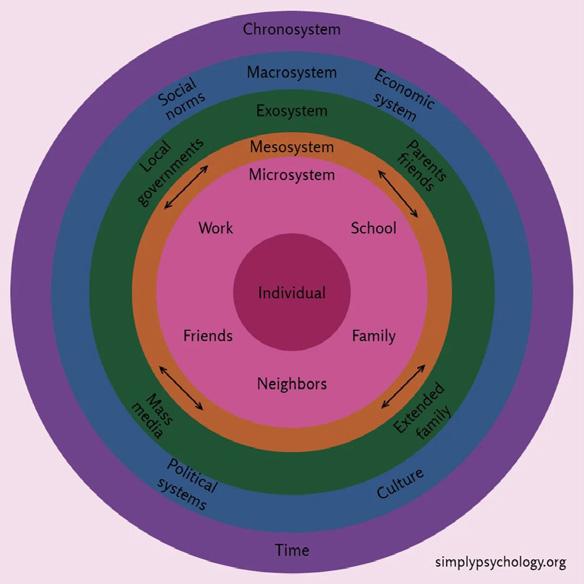
Friends can define a person because you are who you surround yourself around, this means people connect and fall out. If a friendship is toxic or abuse then this can have an impact on how we socialise in general.
Intimate partners can affect someone greatly. If your relationship with your partner is toxic then someone may find it difficult to trust others and be manipulated into thinking they are the only person important to you. This can lead to lack of self worth and feeling less confident in yourself.
This is why it’s important to ensure we’re surrounded by good company which encourages us to become better and be more positive in life.

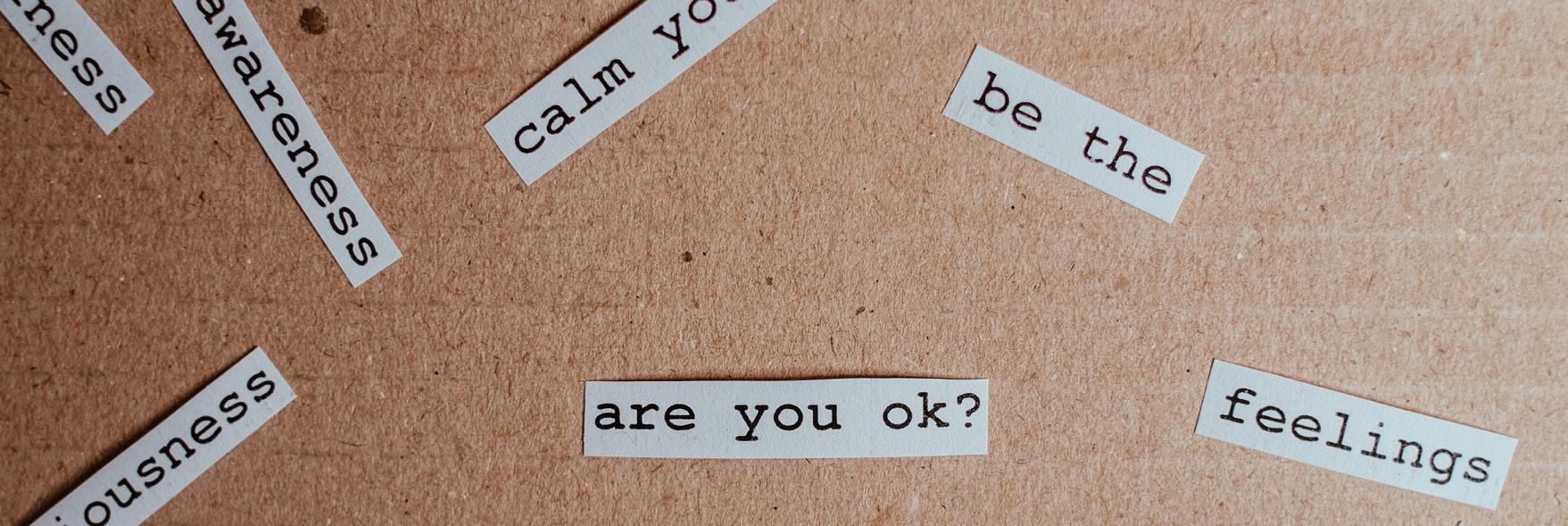 By Chelsea Onyemaechi
By Chelsea Onyemaechi
As a teenager, life can come at you at a very fast pace, and you can get plunged into the dark spiral of overthinking. But here’s a guide to tackle your thoughts and be in control.
Yes, you heard me right. Rock. That. Boat. If you find yourself experiencing an influx of overwhelming thoughts, the best thing to do at that moment may be to face your fears. You may look out ahead of you, and all you see may be murky waters and darkness, but that’s not real. Overthinking can hinder our ability to make clear decisions and take action. So take a deep breath, count to three and move on to step 2.
It may be difficult to come face to face with your fears, but becoming aware of the patterns and triggers that lead to your overthinking can help tackle them. One great way to do this is journaling. You can find many journal prompts online, but a good thing to follow is a worry tree. And for those who prefer a less structured approach, writing your anxieties in the form of a mind map is another good idea.
Now that you’ve distinguished fear and fact. Go the step further and allow yourself to cultivate your self-compassion. Overthinking is often accompanied by self-criticism and harsh judgment. Treat yourself with kindness and acceptance, especially in moments of difficulty and self-doubt. Practice self-care by engaging in relaxing activities, e.g. yoga, reading, etc. This is not a quick fix or an overnight process. Drowning out the noise of overthinking is a journey that requires practice and patience. Find peace amidst the chaos of your thoughts.

Further help can be found at these charities and through your NHS GP (doctor):
Young Minds - the mental health charity. Call their confidential helpline on 0808 802 5544.
Mind - offers help whenever you might need it through information, advice and local services. See: mind.org.uk.
Samaritans - call 116 123.
Let’s talk about motivation. I want to explain why I think motivation is not constant. Being motivated is important for productivity, and we all know how frustrating it can be to lack motivation. In this article, I want to share a few simple tips on how to stay motivated, especially when it feels difficult to motivate yourself.
Create an environment that aids a positive mindset. I listen to podcasts that give positive energy. I also have a list of songs I listen to when feeling down and motivational posters in my room that help reinforce positive thoughts.
No matter what you’re working on, commit to completing it no matter what. I assure you that motivation doesn’t always have to be present, and it’s normal. Life can get tough, but discipline is what you need when your motivation is running low. One strategy that helps me stay motivated is revisiting my goals and shifting my mindset to tackle tasks I’ve been procrastinating on.
In today’s digital age, technology can distract us from our goals. However, if you follow people who share similar goals as you, you are more likely to find the motivation to, for example, exercise if that’s one of your goals.
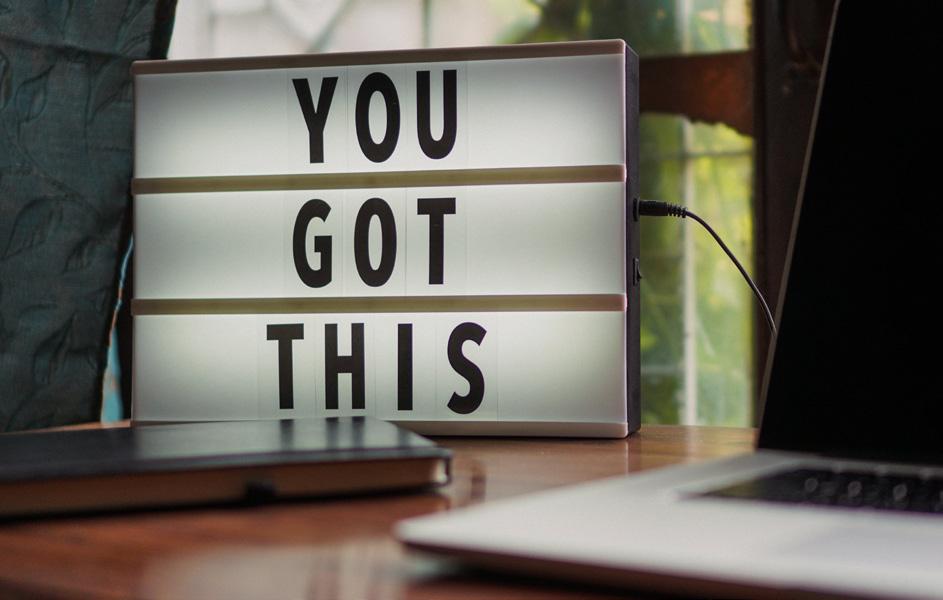

Step into a world where style knows no boundaries! From edgy streetwear to chic, our fashion pages are a vibrant canvas of diverse aesthetics. Embrace your unique vibe, explore the latest trends, and ignite your fashion journey with us.

A tale of city threads: sidewalk statements and streetwear vibes with neutral shirts paired with cargos.
Dress unapologetically and truly embrace your authentic style.
Sweatshirt£14.40
Cargos - £20.00
Jacket - £17.60 Boohoo

Top - £17.50 ASOS
Trousers - £28.00 ASOS
Shoes - £18.00 Boohoo
Dress - £30.00
Shoes - £34.50 ASOS
Co-ord Set £30.40 Boohoo

Celebrating the power of personal comfort in fashion.

T-Shirt - £15.50
Cargo Jeans - £39.99 ASOS
Shirt - £6.40
Dungrees - £25.60 Boohoo


Shirt - £23.99 ASOS
Skirt - £6.40 ASOS
Coat - £40.00
Boohoo
Shoes - £36.00
Boohoo
Elevating the night out with effortless style for a night to remember.
Brushed by fashion: wearable art for the bold and creative.
Daniel
Top - £17.50 ASOS
Trouser - £28.00 ASOS
Shoes - £18.00 Boohoo
Lillie
Shirt - £6.40 Boohoo
Dungrees - £25.60
Boohoo
Shoes - £17.60 Boohoo

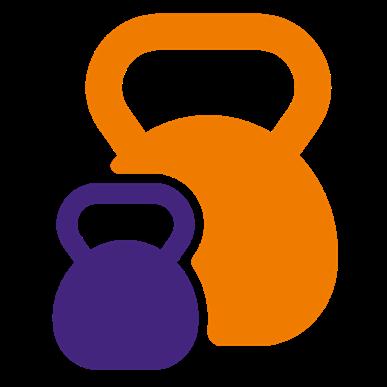
When it comes to finding your gym many of them can be expensive (looking up to £50 per month). Here I’ve found some of my favourite/affordable gyms for you to have a look at.
By Nicole CrookTHE GYM GROUP
Advantages - Ultimate Membership - £24.99 per month
• You can freeze your monthly membership once for free,
• Bring a friend 4 times per month,
• Workout plans worth £20 a month,
• Discounts and offers,
• Multi-gym access nationwide
Advantages - Plus+ - £25 per month
• 10% off at JD Sports
• Use 75+ Gyms (Nationwide)
Disadvantages
• Not enough equipment during peak times
• Only some gyms have a ladies only section
• No cafes
£50 per month peak or £43 per month off-peak
Advantages
• Huge variety of classes
• Has a swimming pool, sauna and steam room
• Multi club access
• Free parking
• Has a cafe
• Has private studios to workout
Advantages - Standard Membership£19.99 per month
• Open 24hrs a day with free gym access.
• Free gym classes
Disadvantages
• £5 joining fee
• No facilities like swimming pools, saunas and steam room
• No private workout space
• No Cafe
Advantages - Standard - £21.99 per month
• No joining fee
• No Contract
• Classes Included
• Open 24 hours (Depending on location)

Disadvantages
• Prices are higher than other gyms
• Can only access at certain times depending on your membership
When it comes to the gym you should always be comfortable in what you wear. Here are some of my suggestions - these gymwear items make me feel confident when working out!

Dive into a collection where comfort meets style. My gymwear picks are designed to boost your confidence and performance. They offer flexibility and support, and are breathable and lightweightperfect for any workout!


We’ve all heard about the Barbie movie; if you haven’t watched it, you should! It is a movie about feminism, breaking stereotypes and finding purpose in your life - so what could go wrong? Well, everything, unfortunately. Despite the Barbie movie promoting themes that, as a society, we desperately need to hear, people still found ways to hate on it. And the saddest thing? It’s those exact themes that have brought hate towards not just Barbie but women in general. In this article, I’ll explain the true meaning of the Barbie movie!

Many people, including one of the characters called Sasha, argued that “Barbie has been making women feel bad about themselves since she was invented”, but the movie wasn’t made to make women feel insecure about themselves. As a doll, Barbie was created to inspire women to be anything they wanted. From being astronauts to doctors, they were essentially proving that men and women are equal.
Although the movie doesn’t start with feminism being a prominent theme, we are shown the importance of women and men being equals throughout, even when the Barbies and Kens try to rule over each other.
When you think of Barbie, do you think of hot pink, girly sleepovers, a Malibu dreamhouse? Of course you do, it’s inevitable! Stereotypical Barbie’s entire life revolved around these things. But, what if I told you that Barbie has always been much more than that?
As I mentioned, Barbie promotes feminism, which allows men and women to be equals whilst still allowing each other to shine. This goes against societal expectations. In the past, everyone expected men to be the focal point of everything, but nowadays, women are seen to be the focus too. And in an ideal world, there should be a balance!

Throughout the movie, Barbie struggles with her body image and accepting the fact that she won’t always be perfect. When she realises that she can just choose to be human at the end of the movie, she allows herself to feel her emotions. We should all be able to let ourselves feel all sorts of emotions, no matter what they are. As a doll, her only purpose was to exist, but as a human, her purpose was to live. To me, this should be the case for all humans. We should be able to live freely and not just barely survive. Furthermore, at the end of the movie, Ruth (the creator of Barbie) gives some final words to Barbie and says, “You don’t need my permission”, which perfectly highlights how we, as humans, have a right to happiness and emotion. You don’t need someone’s approval to be a human being.
In my opinion, the Barbie movie was a cinematic masterpiece which held deeper meanings behind the disco dances and Ken battles, as explained throughout this article. Barbie will always be more than a movie to me, and I hope that it means something to someone else too. If there is one thing that I wish for people to take away from this article is that it’s okay not to be an ideal because “you can be anything!”.
By Mahanoor Zaman
As much as we love our furry friends, it is no new fact that cats can be very antisocial or distant at first. Whether it be a stranger’s cat you see on your way to school, your neighbourhood cat or even a friend’s or family’s cat, their unique personalities make them more likely to ignore anyone overly excited for a cuddle. However, don’t worry my cat lovers!
All you have to do to successfully meet and greet your selected four-legged fur ball is follow the experts’ instructions below. By doing so, you will have a puurrrfect meet and greet!
To many cats, humans can be very scary or intimidating, especially due to our size - creating fear in the cat. To them, we seem like a threat. This can be quickly fixed by lowering yourself to their level to calm their fear of you down a little.
Let the cat choose you! By reaching out your hands towards them, you give them the choice of deciding what’s next for your meet and greet. Whether they sniff, rub or even give you a few auto-paws and selfies. Wouldn’t that be a great meet and greet?
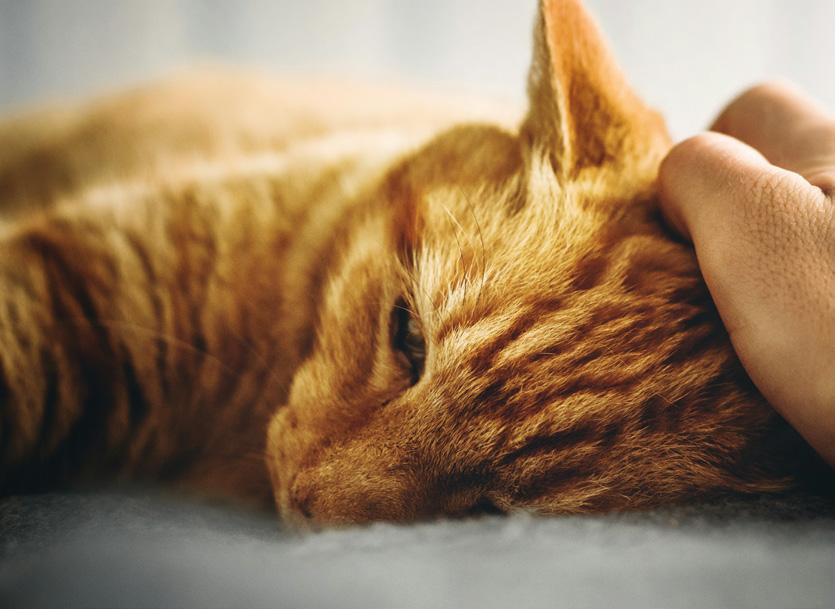
Staring would mean you are challenging a cat and being aggressive. Instead, give them slow, long blinks. In cat language, it means “I love you” and trust. It’s even better if they do it back. This is great progress as it shows they are comfortable around you to close their eyes and let their guard down, even if it’s for a second. Remember to take your time in making them comfortable around you. Don’t be anxious or overly excited to have a rub - let them come to you!
Don’t we all have specific love languages? This is no different for our feline friends. Pay attention to their responses to pets in specific areas, as some they’ll love, and others are offlimits. When petting a new cat you’ve never encountered before, stick to safe areas like their chin, neck and cheeks. Petting for too long can overstimulate the cat, which is not what we want, so pay close attention to their tail movements or if they’re turning their head fast - this indicates when you should stop.
Remember to introduce yourself as much as possible so they are familiar to you and your scents. We don’t always smell like a lavender field - sometimes it’s sweat after a long run or cookies after baking and staying in the kitchen for hours. We’ve all been there. Let your furry friends choose to interact with you, and make it easy for them to want to! Doing all this will ensure to lock you guys in a long-lasting friendship. All it takes is some patience and trust!

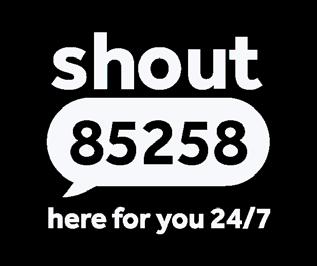

Creativity. Is it just a skill people are born with? Or is it a skill you need at certain points in your life? So, what comes to your mind when you think of the word creativity? A session of arts and crafts, buildings or perhaps it’s even the cupboard you have in your room. That’s right, a cupboard, the thing you have probably spent less than a second thinking about. That cupboard is an invention someone has spent years thinking about how to create.
By Khadijah Patel
Some believe these ideas come in dreams, and people just happen to have that gift. Or maybe it took careful planning and time to solve an issue by upgrading and improving a product by someone who is dedicated. This all comes from creativity.
Creativity isn’t just a gift of the mind but it is something you must grasp hold of and value. Those painful markers you were forced to write within English classes all assemble together because of creativity. The extent you have to go through to make your sibling’s lunch is successful because of creativity. The carpet beneath your feet to the walls you are surrounded with is creativity.
Well, if it isn’t already active, then it may require developing that skill. Everyone has a creative mind, but it can be activated and developed in different ways. Some through drawings and others through compiling notes to build the future new car. You may be thinking, that could never be me; well, Thomas Edison invented the light bulb after 1,000 unsuccessful attempts. Something we use every day. At the time, he was ridiculed, and people were not impressed; however, he didn’t let that stop him. A British Committee Parliament 1878 accepted the idea, saying it was “good enough for our Transatlantic Friends but unworthy of the attention of practical or scientific men”. Yet, it’s one of the most important sources of light we use today! In other words, don’t let anything disadvantage you from creating what
you feel is necessary. Necessary for others but also yourself. So start with something simple, maybe story writing or drawing, which is extremely encouraged for its therapeutic benefits! It’ll likely take you a long way.
It is said you are either logical and analytical or creative and innovative… which one are you?
The most common belief tends to be the one above, and creativity is apparently a job for the right hemisphere of your brain. If you are more logical, then you are a “left-brain thinker” however, if you have a free and creative mindset, you are more likely a “rightbrain thinker”! Although, some neuroscientists argue that there is not enough evidence to prove that.
Want to test whether you’re more right or leftbrained? Try the link below.
https://heywise.com/quiz/are-you-rightbrained-or-left-brained/2/
Many times, we neglect our health without realising the long-term consequences. We become demotivated, lazy and neglectful. Looking after ourselves does not mean wasting time, but rather, it’s helping us save time in the long term by being more healthy. Our health is more valuable than anything in the world! It’s time that we reclaim our health and improve both physically and mentally.
In fact, all aspects of your day can improve your health. From simply making your bed in the morning to stretching for 10 minutes a day. Here are some detailed tips that will help you improve your health.
By Juily Chowdhury Zamal• It is vital that sunscreen is applied every day. Do not get fooled by the cloudy and gloomy weather of the UK, as UV rays are still highly prevalent. I recommend SPF50 and no lower than SPF20. (You may be thrown off by the white casts that form however, there are countless options that do not leave a cast).
• Keep your skin moisturised! It will help you avoid dryness and oiliness. As well as keeping your skin hydrated and feeling refreshed.
• At night, I recommend using a simple fragrancefree toner and a light moisturiser. It has helped me avoid dryness, and I feel much more rejuvenated when I wake up.
• Shockingly, flossing is not as common as it should be. Remember to floss whenever you brush your teeth, as it helps remove the plaque build-up and bacteria that infect your gums, teeth, and bones. It also reduces your risk of tooth decay significantly.
• Brush or scrape your tongue, as it will remove the layers of bacteria that cause stinky breath. It will also help you expose more taste buds so you can enjoy your food more!
• Last but not least, brush your teeth twice a day!


• Being productive and doing chores can help you significantly. It will help avoid overthinking and will help to stimulate your brain in a positive way. Make a todo list that you can use to tick off tasks.
• Spend time in nature as it will help you to relax and de-stress.
• Connect with others and spend some quality time with family.
• Find things to learn and become more creative. You could read a book, paint, crochet or whatever hobby you enjoy.
• Get enough sleep, and don’t deprive yourself of a good rest even if you need to finish your homework!
• Maintain a good balanced diet, and allow yourself daily snacks to satisfy your cravings
• Exercise and stretching regularly, even 10 minutes a day, can go a long way.
• Meditate or do yoga to de-stress.
• Get some sunshine - go for a walk or a bike ride.
As we sit down for an insightful conversation with Caitlyn Fell, the anticipation is palpable, for within the confines of this interview lies a gateway to the mind behind the words in ‘An assortment of Poems’. Join us as we delve into the creative process, inspirations, and the unique perspective that defines this young writer’s voice.
By Nicole Crook
My name is Caitlyn, and I’m 19 years old. In primary school, I used to really enjoy reading books, but I didn’t really develop a passion for it until I was nine years old when I picked up the first Harry Potter book. I have always liked poetry, which inspired me to write my own poems. My writing journey stemmed from there. I started writing poetry as a way to get my feelings down. When I was about 10, I wrote my first poem about my grandad, who had passed away. After that, I don’t think I actually wrote poems for a while. Until my English teacher in college ran a poetry club, which helped with some of the poems that I actually put in my book.
It was very much a spur-of-the-moment decision. I just decided to look into what the publishing process entailed one day, over the summer holidays, because I had written a few poems, and I thought this could actually be a book. I found a relatively cheap site for publishing and uploaded my work onto the website. I had to design my front and back cover, decide the font type and size, and the formatting of it all and then pay and send it off. A few weeks later, it was delivered. I listed it on Amazon and eBay, and I found other sites where you can sell stuff as well. When you self-publish, you have to do everything yourself, and because of how sudden it was, I didn’t really ask anyone for help. If I were going to do it again, I’d probably think it out more and make sure I double-check everything.
Can you tell us a bit about your poetry book?
My book is mainly for young people and even just people struggling with their mental health. The poems in the book are very personal to me, and the tone used is very informal since I’m speaking from my heart and my personal experiences. I’m delving deep into my emotions. I want people who read it to be able to connect with it and not have a poetic barrier by making it transparent. There are a range of emotions like jealousy, grief, humour and happiness covered through the poems. And my favourite poem is probably ‘The Midnight Library’.
What are your future plans for writing?
Well, I might republish my book if it sells out completely, and I’m currently working on a second poetry book. Although my main project is an actual novel, that’ll probably be a few years in the making. There is one thing I’d like to say to the young people who are aspiring to get into writing: Don’t give up because of imposter syndrome. Even experienced writers like Jacqueline Wilson, whom I met recently, said to me that she thinks imposter syndrome never goes away. And yeah, I don’t think it does, so I’d say give it your all and just go for it. You’ve got to try.
If you want to have a read of ‘An Assortment of Poems’ by Caitlyn Fell, scan the QR code
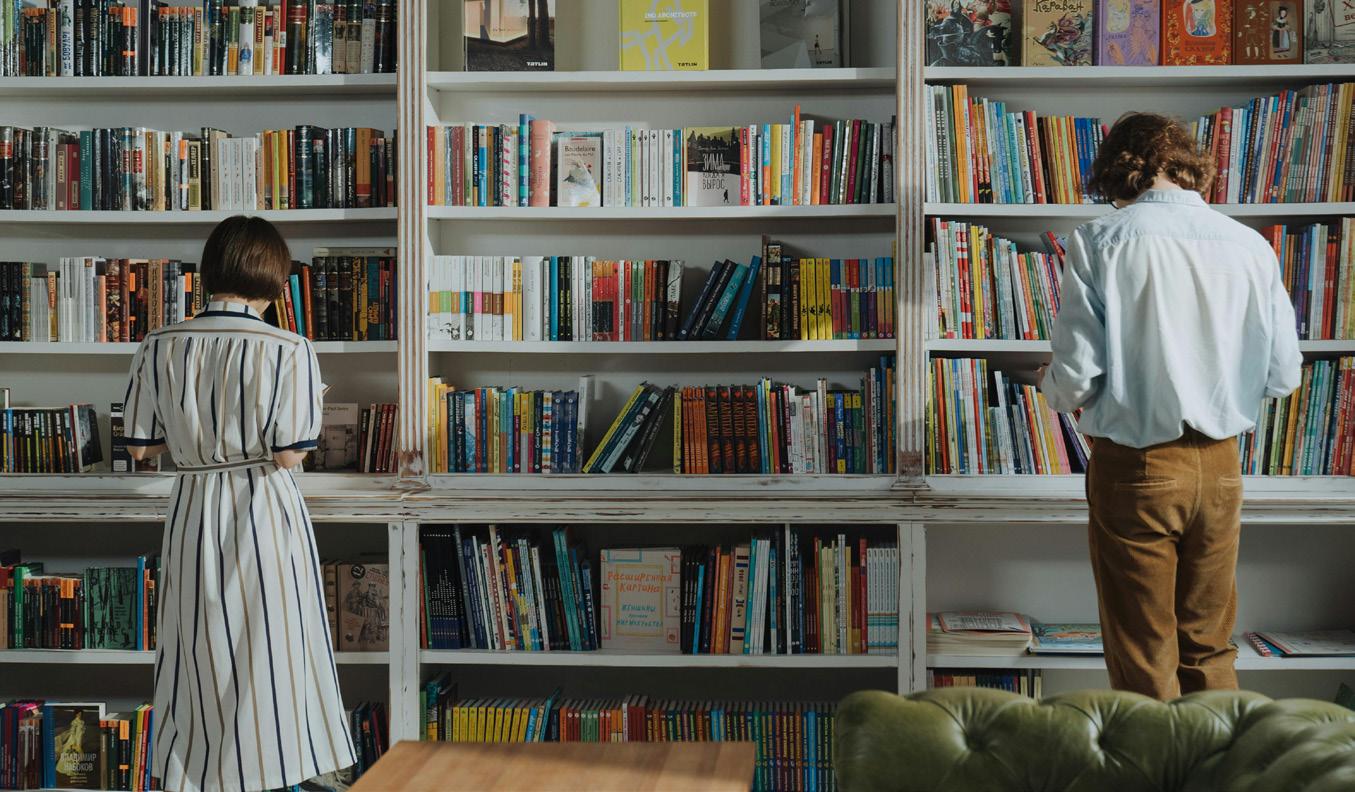
Youth Leads UK’s Youth Advisory Board is a group of young people who make sure we are youth-led and youth-informed. That means, every big decision we make at Youth Leads UK is led by young people or checked by young people. Young people also have a say in the programmes we offer and how we deliver them.
Young people under the age of 30 make up almost 40% of the UK’s population, but, more often than not, they are less than 0.01% of members on decision-making boards across the country.
Youth Leads UK is governed by our young Board of Trustees, who hold our staff team accountable for the delivery of meaningful, youth-focused work. At our 10th Anniversary Celebration, we announced the formation of a new Youth Advisory Board which is now formed.
Members participate in discussion-based activities, designed with and supported by our Youth Engagement Team, to work together to move the charity forward.
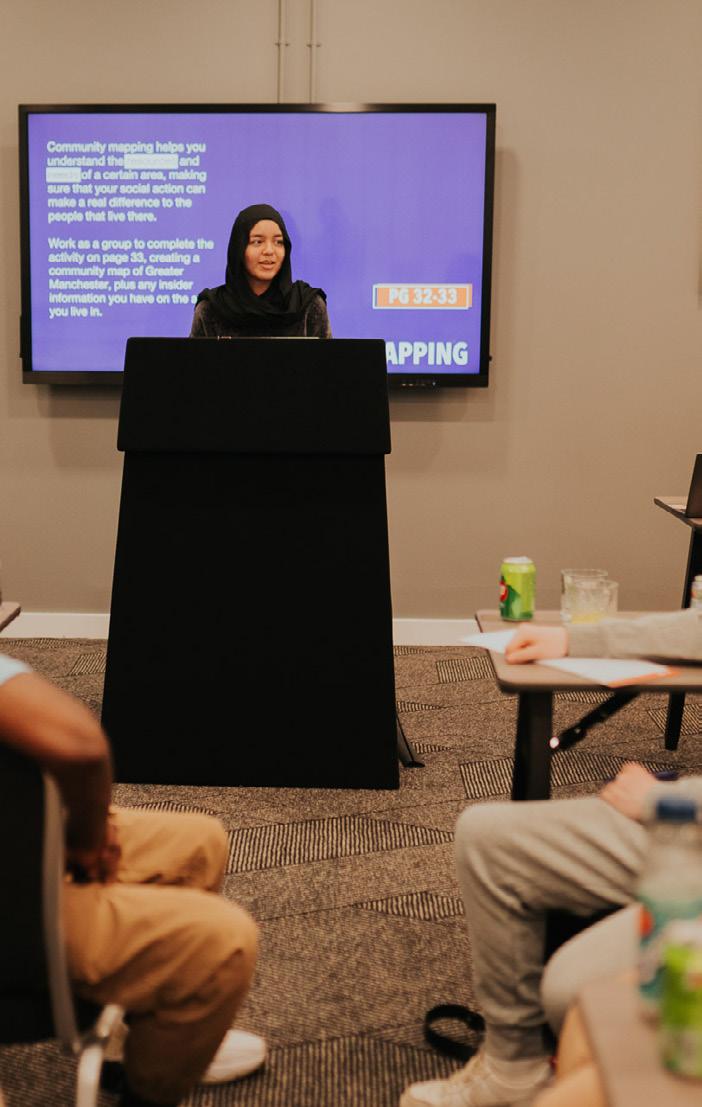
Youth Advisory Board Member’s Responsibilities Include:
• Providing constructive feedback to the Board of Trustees on their strategies,
• Sharing experiences and insight into issues faced by young people,
• Presenting ideas to the Youth Advisory Board and the Board of Trustees on proposed programmes, partnerships and other services,
• Maintaining meaningful relationships with people connected to Youth Leads UK (like funders and supporters) and our Alumni (people who have graduated from our programmes),
• Advocating Youth Leads UK values (fun, bold, community, empowering, & aspirational).
Youth Advisory Board members will also shape their own roles and responsibilities, which will become more defined as they become settled within the Board.
The Youth Advisory Board will have between 10 and 15 members at any given time from diverse backgrounds and experiences as we know that one person cannot represent all communities. The age of our members ranges between 14 & 25.
Each board member will offer their own unique perspectives and experiences, with the aim to ensure our board can represent a wide range of Greater Manchester’s diverse young people.
The Youth Advisory Board is led by its Chair, Mahammed Faizan Sharief.
If you’re interested in making a real contribution to a leading youth charity, please visit our website for more information or get in touch with our youth engagement team!
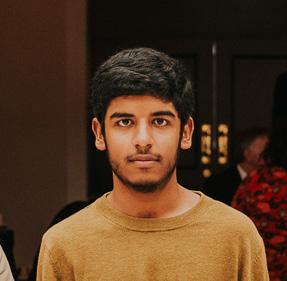

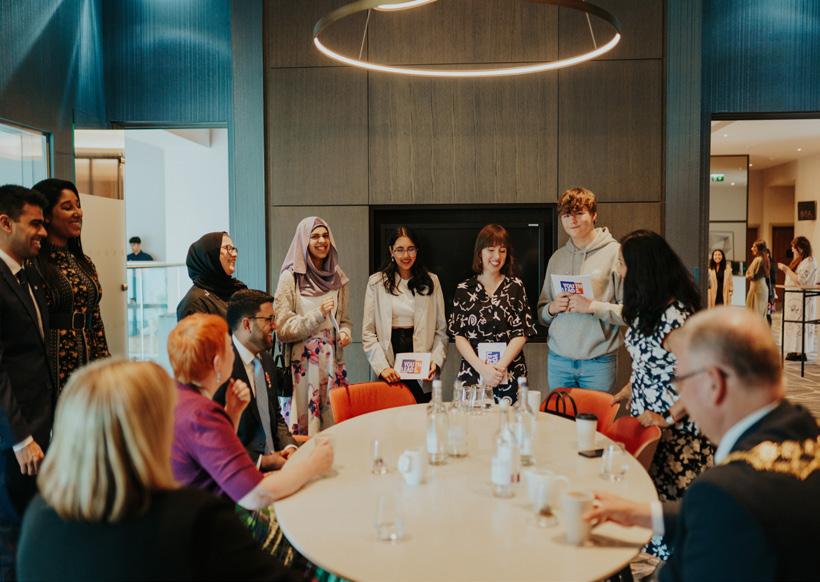
Diet culture is one of the most prolific yet dangerous themes of conversation in today’s society. It is essentially a system that values weight, shape and size over health and wellbeing. Here are some helpful tips on how to avoid diet culture in a world where dieting is the culture because life is too short to weigh out your cornflakes.
The biggest thing to always ensure is that you avoid labelling any food as good or bad. The only foods that are ‘bad’ for us, are foods that have gone mouldy or we are allergic to. Foods can be quick sources of energy or can provide us with necessary vitamins, keep us warm, be convenient or nourish our souls.
Block them!
It’s easy(ish) to block people online, but not so easy in person. Learning to navigate a world of obsession with equating thinness to health is difficult and something you have to practise. You could start by changing the topic, or just walking out. A simple ‘I found that I feel better when I don’t restrict my eating’ works well. Do what you feel comfortable with.


Another tip is to educate yourself on different types of health. If we all ate and exercised the same, we would still have different bodies. Also, become best friends with the block button on social media. If an account makes you feel bad about yourself, whether it was purposeful or not, prevent it from ever popping up again. I would additionally recommend analysing the way you view other people and what you would tell them. You don’t love spending time with your friends because of the way they look, you love them because they make you feel good and you like their personality. So then you know that no one else is bothered about your experience either. You would also never tell a friend that they shouldn’t have a slice of cake, so never tell yourself the same. Someone once told me ‘Nobody is going to write “had a flat stomach” in your eulogy’. She explained that they’ll talk about my kindness and the amazing things I will do, which I know is a bit of morbid thought, but emphasises what in our lives is important.
My final point is educating yourself on how everything you see on social media is for money. Billboards, videos and magazines advertising their new diet pill or programme are just so that they can make money. To be blunt, Weight Watchers are not putting leaflets through our letterboxes because they are concerned for our health, it’s so we buy their subscription and their ready meals.

F o o d B a n k s c a n p r o v i d e f r e e f o o d f o r p e o p l e a c r o s s B o l t o n . F o o d p a c k a g e s u s u a l l y c o n t a i n n o n - p e r i s h a b l e s ( c a n n e d g o o d s , e t c ) o r f r e s h p r o d u c e
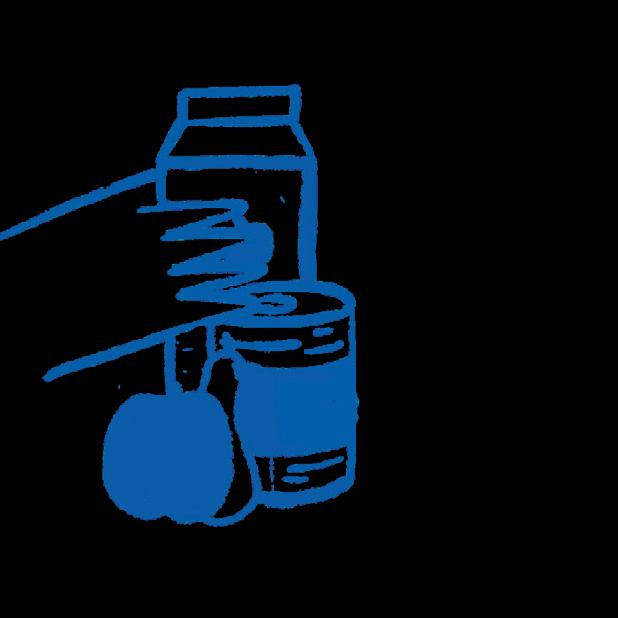
T h e F o o d H u b i s B o l t o n ’ s m a i n c e n t r a l l y l o c a t e d e m e r g e n c y f o o d h u b , p r o v i d i n g f o o d p a r c e l s t o s t r u g g l i n g h o u s e h o l d s a c r o s s

B o l t o n W e a r e s o g r a t e f u l t o a l l t h e p a r t n e r o r g a n i s a t i o n s , v o l u n t e e r s a n d d o n o r s o f f o o d a n d f u n d s .
Y o u c a n c a l l U r b a n O u t r e a c h o n : 0 1 2 0 4 3 8 5 8 4 8
W o r k i n g w i t h l o c a l c h a r i t y U r b a n O u t r e a c h a n d v o l u n t e e r s , B o l t o n a t H o m e r u n s a f o o d p a n t r y i n f o u r a r e a s o f B o l t o n . A t t h e s e s i t e s , y o u c a n s h o p f o r f o o d , d r i n k , a n d o t h e r h o u s e h o l d e s s e n t i a l s a t l o w c o s t w i t h a t e m p o r a r y m e m b e r s h i p f e e .
Y o u ’ l l g e t a w a r m w e l c o m e , a c h o i c e o f g o o d s a n d o n e - t o - o n e s u p p o r t f o r a n y t h i n g t r o u b l i n g y o u . I f y o u , o r s o m e o n e y o u k n o w , c o u l d u s e s o m e s u p p o r t f r o m o n e o f o u r f o o d p a n t r i e s , P l e a s e h e a d o v e r t o t h i s w e b s i t e : b o l t o n a t h o m e . o r g . u k / f o o d - s u p p o r t / C r e s c e n t F o o d B a n k ’ s a i m i s t o p r e v e n t o r r e l i e v e f o o d p o v e r t y b y p r o v i d i n g f o o d a n d g o o d s f o r t h e b e n e f i t o f t h e p e o p l e o f B o l t o n a n d s u r r o u n d i n g a r e a s .
C R E S C E N T F O O D B A N K
T h e y a l s o o f f e r H a l a l a n d v e g e t a r i a n o p t i o n s , a n d y o u c a n g e t h e l p t h r o u g h t h e i r w e b s i t e b e l o w R e a c h C r e s e n t F o o d B a n k o n
0 3 3 3 7 7 2 6 2 9 9 o r a t c r e s c e n t f o o d b a n k . o r g . u k /


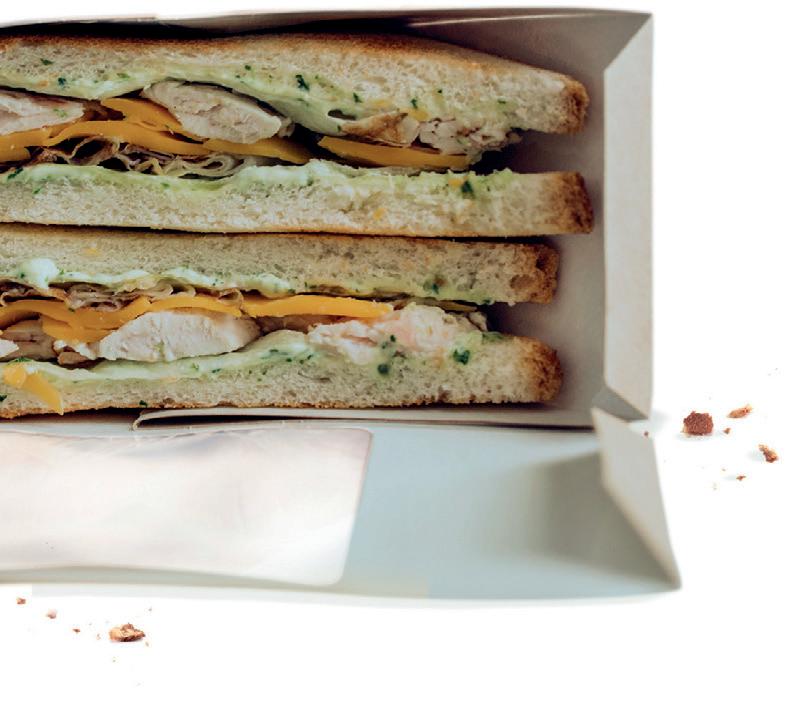


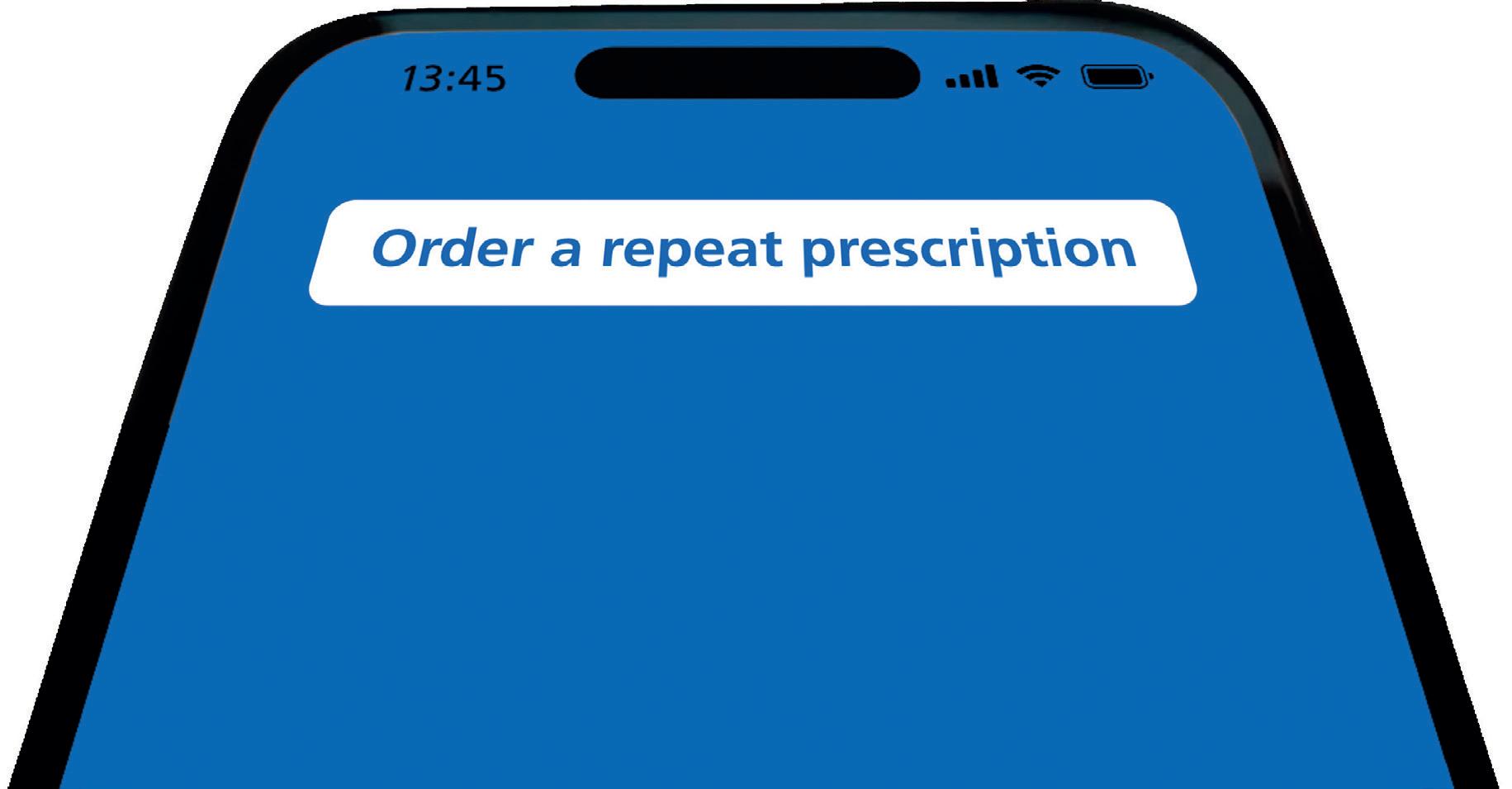

When it comes to anything political, it’s easy to become cynical and pessimistic. It seems that no matter what, people, especially young people, can’t do much to actually have an impact. While this feeling is understandable, there are still ways that you can make a real difference.
By Davian Mendez JonesKnowledge is power, especially in politics. The easiest way to learn these days is, of course, through the internet. While researching issues on the internet, it’s important to remember that every source you learn from will be biased in one way or another. The best way to counteract this is to engage with a wide variety of sources on issues to ensure that you’re getting a balanced and representative view. Once you know more about issues, you can act upon that knowledge and begin to make a difference.
The main job of elected lawmakers is to represent you, so they care about what you have to say. You can interact with both members of Parliament and local lawmakers in several ways. You can contact their teams on social media, send them emails, and even write them letters. Beyond that, you can also interact with lawmakers face-to-face by attending what’s known as a surgery, which is a series of one-to-one meetings with a lawmaker.
Another way you can interact with lawmakers is with petitions. You can sign or create an official petition (which can be debated by MPs) to Parliament at petition.parliament.uk. You could also make a paper petition or visit www.change.org to create an online petition.

You don’t need to get involved in politics by yourself! There are several political and non-profit groups that you can join that care about the same issues you do. This could be one of the major political parties in the country or a local group focused on smaller-scale issues. Political groups can help organise activities such as protests or mass petitions which can have more impact due to their scale. These groups will also provide opportunities to meet people who care about making a difference as much as you do.
Voting is the most accessible way people can have an impact, as it allows you to choose who represents you. You can vote in numerous elections, besides just elections to Parliament. When it comes to the dates of local elections, keep an eye out for announcements from your local council or other political body. Finally, don’t forget that a photo ID is now required to vote at polling stations. If you don’t have a photo ID, you can apply for one for free. You can learn more about this requirement by visiting the Electoral Commission’s website.

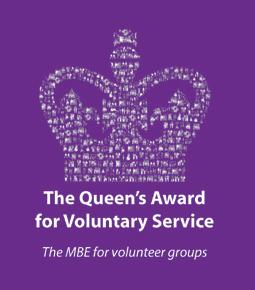
Joining Youth Leads gives you the chance to develop your skills, realise your potential and create positive change in your community!

Across three months, you’ll help create a magazine, conduct a fashion shoot, write articles, and plan the delivery of a social action project to make things better in your area.
Find out when we’re recruiting on our socials @YouthLeadsUK
